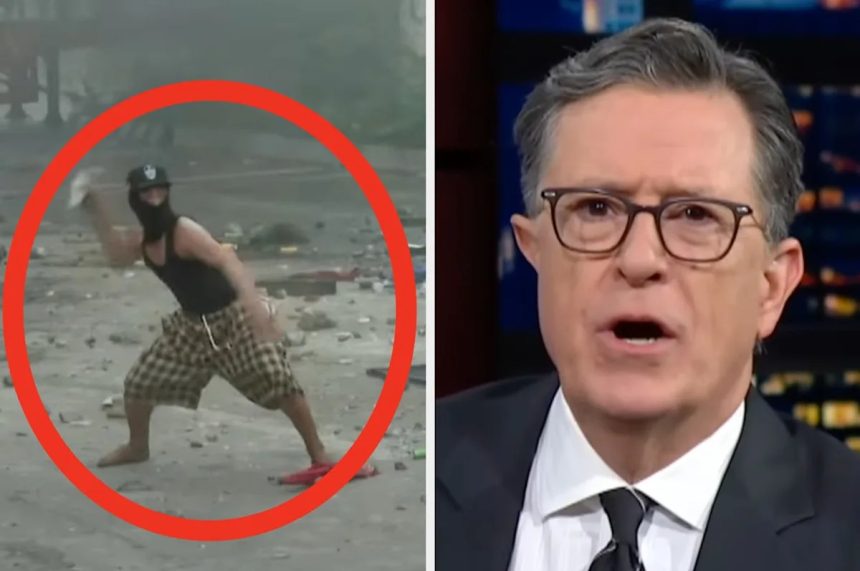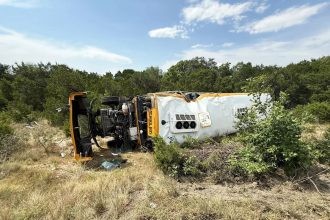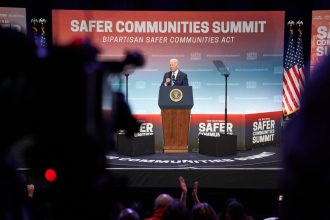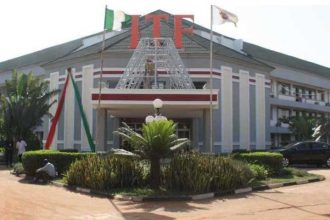With domestic politics consuming so much bandwidth in American media, it’s easy to miss how rapidly the rest of the world is evolving. From monetary policy shifts that affect global borrowing costs to migration deals that test democratic norms, international developments are quietly reshaping the systems Americans depend on daily. Here are 20 stories making headlines overseas that deserve attention for their broader implications on everything from travel costs and supply chains to security alliances and cultural soft power:
1. The US will nearly double its Electronic System for Travel Authorization (ESTA) fee from $21 to $40 on September 30, affecting citizens from 41 visa-waiver countries, including most of Europe and the UK. The increase comes as US arrivals are already down more than 3 million compared to 2024, undermining expectations of post-pandemic tourism recovery. Additionally, a new $250 “visa integrity fee” will hit travelers from non-waiver countries like Mexico, China, and Brazil starting October 1.
Karen Vardanian / Getty Images
Why it matters: Doubling entry costs while visitor numbers slip risks making the US less attractive to international travelers, students, and business visitors. The timing is particularly poor as Europe experiments with its own tourism caps and taxes. For Americans, fewer international visitors means reduced revenue for hotels, airlines, restaurants, and retailers, while higher education costs could make US universities less competitive globally. Combined with stricter immigration enforcement, expensive visas threaten industries that generate billions and support millions of American jobs.
Sources: Euronews
2. Canada and Mexico agreed to strengthen trade and security cooperation as both face mounting pressure from US tariffs. Prime Minister Mark Carney and President Claudia Sheinbaum met in Mexico City, pledging closer collaboration on infrastructure projects like ports and energy corridors. While stressing commitment to the US–Mexico–Canada Agreement (USMCA), both leaders signaled a desire to reduce Washington dependence after the US imposed 50% tariffs on Canadian steel and 25% “fentanyl tariffs” on Mexico. The summit comes ahead of the 2026 USMCA review.

Teresa Suarez / Getty Images
Why it matters: Trump’s tariffs are fundamentally reshaping North American alliances, pushing two of America’s closest neighbors into a tighter partnership that could give them more leverage in trade negotiations. The stakes for Americans are bigger than they appear. For instance, US cars aren’t built in one country — a single vehicle may cross the Canada–Mexico–US border six times before completion. Canadian oil and hydropower also help keep US energy costs lower, while Mexico supplies much of the fresh produce filling American grocery stores in winter. If Canada and Mexico strengthen ties independently of Washington, the US risks losing influence over the continental supply chains that underpin daily American life, potentially raising costs for cars, groceries, and household energy.
Sources: BBC, The New York Times
Related: “Idk Wtf He Thinking Bout Heaven For”: 25 Best Tweets From This Wild, Wild, Wild Week In Politics
3. The European Central Bank left all three policy rates unchanged on September 11, keeping the deposit rate at 2% while new forecasts nudged 2025 growth up to 1.2%. The decision follows a late-July EU–US deal capping most American tariffs on European goods at 15%, easing trade uncertainty that had clouded economic projections. ECB President Christine Lagarde dismissed market volatility concerns and urged governments to focus on competitiveness reforms.

Bloomberg / Getty Images
Why it matters: The ECB’s rate corridor — spanning deposit, refinancing, and emergency lending rates — sets borrowing costs across the eurozone and influences global capital flows. By holding steady after a year of cuts, the ECB signals both confidence in taming inflation and caution about political instability in France. These rates ripple through international bond markets and currency exchange rates, ultimately affecting the cost of capital worldwide and the price of European goods for American consumers.
Sources: European Central Bank, Financial Times
4. Conservative MEPs erupted in Strasbourg after Parliament leaders blocked a proposed minute of silence for US activist Charlie Kirk, who was killed while speaking at a Utah college. Right-wing groups argued that previous tributes, including to George Floyd in 2020, set a precedent for honoring significant American figures. But Vice President Katarina Barley ruled against the commemoration on procedural grounds, sparking protests from conservative benches who saw partisan double standards at work.

Picture Alliance / Getty Images
Why it matters: The dispute exposes how American culture wars now filter directly into EU institutions. While Parliament regularly observes moments of silence for political figures and tragedies, the fight over Kirk reveals deeper transatlantic fractures. European conservatives view the rejection as ideological bias — honoring Floyd as a symbol of racial justice while dismissing Kirk’s conservative activism. The controversy illustrates how polarization travels across borders, with European lawmakers increasingly forced to choose sides in distinctly American political battles.
Sources: Euronews, Politico Europe
5. Russia held its first Intervision song contest in Moscow, reviving a Soviet-era format after being banned from Eurovision in 2022 over Ukraine. Backed by President Putin, the event drew 23 countries, including China, India, Brazil, South Africa, Saudi Arabia, the UAE, Cuba, and Belarus, framing itself as a platform for “traditional family values.” Vietnam’s Duc Phuc won with a folklore-rooted performance, while Russia’s nationalist pop star “Shaman” withdrew as the host nation.

Picture Alliance / Getty Images
Why it matters: Intervision illustrates Moscow’s attempt to weaponize soft power by blending music with nationalism and conservative messaging. The lineup heavily featured Asian, African, and Latin American countries that Russia calls “friendly,” underscoring its pivot toward the Global South. By positioning itself as the leader of an alternative, non-Eurocentric cultural bloc representing billions of people, the Kremlin seeks to normalize its isolation while mounting a values-based challenge to Western liberalism. The emphasis on “traditional family values” and exclusion of LGBTQ expression turns the stage into a platform for Russia’s conservative agenda, directly countering Eurovision’s celebration of diversity.
6. Millions of Europeans are participating in this year’s European Heritage Days throughout September, with thousands of cultural sites opening free to the public. The 2025 theme focuses on “architectural heritage,” featuring guided tours and workshops across the continent. Since launching in 1989, the annual event now draws over 20 million visitors and has awarded the European Heritage Label to symbolic sites like Brussels’ Royal Theatre Toone and Spain’s Monastery of San Jerónimo de Yuste.

Eloi_omella / Getty Images
Why it matters: Beyond weekend tourism, Heritage Days represent one of the EU’s most successful cultural diplomacy projects, designed to make European unity tangible for ordinary citizens. That mission carries renewed urgency as far-right and nationalist movements across Eastern and Western Europe challenge the concept of shared European identity. By opening monuments and modernist landmarks, the EU attempts to anchor unity in something citizens can experience directly, countering nationalist division with reminders that European heritage transcends borders.
Sources: European Commission
7. Saudi Arabia and Pakistan signed a sweeping mutual defense agreement declaring that any attack on one will be treated as an attack on both. Crown Prince Mohammed bin Salman and Prime Minister Shehbaz Sharif sealed the deal in Riyadh on September 17, building on decades of security cooperation. Since 1967, Pakistan has trained more than 8,000 Saudi soldiers. Officials stressed that the pact institutionalizes existing ties rather than responding to specific threats, though it comes amid regional upheaval following Israel’s September 9 strike on Doha, Qatar.

Maxim Shemetov / Getty Images
Why it matters: A mutual defense pact between Saudi Arabia and nuclear-armed Pakistan reshapes the security architecture of both the Middle East and South Asia. For Saudi Arabia, it provides hard security guarantees in a volatile region where US support has grown less predictable. For Pakistan, it offers financial and diplomatic backing from a key partner during domestic turmoil. The agreement deepens strategic interdependence between two states that already share close military, economic, and religious ties, while raising questions about how Pakistan’s nuclear capacity might factor into Gulf security as regional powers forge alliances independent of Washington.
Sources: Al Jazeera
Related: The Internet Is Obsessed With Jasmine Crockett’s Shady Response To Kash Patel At House Hearing
8. Australia’s bid to deepen security ties in the Pacific stalled again as Prime Minister Anthony Albanese left Papua New Guinea without signing the anticipated Pukpuk Treaty. This mutual defense pact would represent Australia’s first new alliance in over 70 years. Instead, leaders signed a defense communique, citing delayed cabinet processes. The setback follows a similar stall in Vanuatu, where concerns about sovereignty and Chinese financing put a $330 million security pact on hold.

Fairfax Media / Getty Images
Why it matters: The Pacific has become a front line in great-power competition, with China using infrastructure deals to win influence while Australia offers defense partnerships. Two high-profile diplomatic setbacks raise questions about Canberra’s ability to secure the regional partnerships needed to balance Beijing’s rise. For Australia, the delays suggest even close neighbors are wary of commitments that might compromise sovereignty or limit their options with China, showing how Pacific states are leveraging rivalry between major powers to preserve independence.
Sources: The Guardian, Al Jazeera, Reuters
9. Taiwanese President Lai Ching-te declared the island nation “determined to defend freedom and democracy” and vowed it would never surrender to Chinese invasion during Taiwan’s largest-ever arms show. He highlighted a new civil defense handbook to prepare citizens for war or natural disasters, stressing that any claims of capitulation would be false. US defense firm Shield AI was among the companies deepening partnerships as China ramps up military pressure on the territory it claims as its own.

Cheng Yu-chen / Getty Images
Why it matters: Lai’s message aimed to deter Beijing while reassuring allies that Taiwan would resist invasion, countering fears of rapid collapse that could embolden Chinese aggression. For Taiwan’s 23 million people, civil defense preparations and military partnerships represent efforts to project resilience both domestically and internationally. The stakes extend far beyond regional security. Taiwan produces most of the world’s advanced semiconductors essential for smartphones, cars, and countless other technologies. A conflict would threaten not only regional stability but global supply chains and economic systems that depend on these critical components.
Sources: Reuters
10. Fourteen West Africans deported from the US to Ghana were subsequently sent to their home countries, including Nigeria and Gambia, despite lawyers warning that some faced torture or persecution risks. US authorities used Ghana as a “third country” to bypass deportees who couldn’t legally be sent directly home, sidestepping immigration court protections. Ghana’s foreign minister defended the move as a “humanitarian principle and pan-African empathy,” saying it spared fellow West Africans from indefinite US detention.

Ernest Ankomah / Getty Images
Why it matters: The arrangement spotlights how the Trump administration uses third countries to circumvent US laws barring deportations to places where people could face persecution. By outsourcing deportations that Ghana can’t legally challenge, US immigration enforcement becomes foreign policy, potentially weakening safeguards at home while shifting responsibility abroad. Opposition lawmakers and rights groups argue this undermines Ghana’s sovereignty and puts deportees at risk, testing both international law protections and bilateral relationships.
Sources: CNN/AP News, BBC Africa
11. Europe’s largest low-cost airline, Ryanair, is slashing nearly two million seats to Spain this winter, closing its Santiago base, and suspending multiple routes in response to a 6.5% increase in airport fees. CEO Michael O’Leary blasted the increase as “excessive,” though Spanish officials note Ryanair’s own fares are up 21% this year. Competitors, including Vueling, Iberia Express, and Wizz Air, are quickly moving to fill the gap, even as Spain welcomed a record 55.5 million international visitors in the first seven months of 2025.

Nurphoto / Getty Images
Why it matters: The clash highlights how policy changes can rapidly reshape Europe’s travel landscape. While rivals are absorbing Ryanair’s capacity, the cuts mean fewer options at regional airports and likely higher prices on popular holiday routes. For Spain, Europe’s tourism powerhouse, the dispute reveals how fragile record-breaking visitor numbers can be to airline strategy and fee structures. As Europe’s budget airline equivalent to Southwest or Spirit, Ryanair’s retreat from the world’s second-most visited country demonstrates how operational disputes can ripple through global travel costs.
Sources: Euronews
12. Philippine police arrested 49 people after violent clashes near the presidential palace during mass anti-corruption demonstrations in Manila. While over 33,000 rallied peacefully, about 100 others armed with clubs and firebombs battled officers, injuring 70 police and vandalizing buildings. Public anger centered on revelations that lawmakers and contractors pocketed huge kickbacks from flood-control projects worth billions of pesos, intensified when a wealthy couple linked to the scheme flaunted luxury cars, including one worth $737,000.

Ezra Acayan / Getty Images
Why it matters: The scandal demonstrates how corruption can cripple disaster preparedness in a nation that faces an average of 20 typhoons annually and where millions live in flood-prone areas. The Philippines is still rebuilding from devastating storms like Typhoon Rai in 2021, which killed over 400 people, and Super Typhoon Haiyan in 2013, one of the strongest storms ever recorded. When infrastructure funds meant for flood barriers, drainage systems, and storm shelters are stolen instead, it leaves entire communities defenseless and vulnerable to predictable disasters. For President Ferdinand Marcos Jr., the fallout threatens credibility and risks fueling wider unrest. The Philippines is also a key US ally in countering China in the South China Sea, making stability a strategic concern for Washington. If corruption deepens public distrust and weakens state capacity, it could erode both domestic resilience and regional security during the intensifying US-China rivalry.
Source: AP News
13. Brazil’s lower house voted to expedite an amnesty bill potentially pardoning thousands of supporters of far-right former president Jair Bolsonaro who were convicted for the January 2023 storming of Congress, the Supreme Court, and the presidential palace. The preliminary draft covers all “political demonstrations” from October 2022 onward, with some lawmakers wanting it extended to Bolsonaro himself, who received a 27-year prison sentence last week for plotting a coup. Backers frame it as promoting “peace,” while critics call it an attempt to protect Bolsonaro and undermine accountability.

Evaristo Sa / Getty Images
Why it matters: Brazil’s amnesty fight reflects deeper struggles with a radicalized right-wing movement that has grown more confrontational. Bolsonaro’s allies see the measure as shielding their leader while reframing the riots as legitimate protests. For Congress, it’s also a pushback against the Supreme Court, which has led prosecutions of coup plotters. Granting amnesty could erase accountability for the gravest attack on Brazilian democracy since military rule ended, potentially emboldening extremists by lowering the political cost of violence and deepening institutional conflicts.
Sources: Reuters
14. Indonesian President Prabowo Subianto appointed retired Gen. Djamari Chaniago as security minister after deadly protests over lawmakers’ lavish perks left at least 10 dead. Unrest erupted when revelations showed all 580 parliament members received housing allowances nearly 10 times Jakarta’s minimum wage, escalating after police killed a ride-hailing driver. The violence led to the dismissal of five ministers, including respected finance minister Sri Mulyani Indrawati. Chaniago, 77, once replaced Prabowo himself in 1998 during Indonesia’s transition from dictatorship.

Devi Rahman / Getty Images
Why it matters: The crisis tests Indonesia’s young democracy as it balances public anger at corruption with the return of a president long tainted by rights abuse allegations. Prabowo’s choice of Chaniago — one of the generals who once sidelined him — signals attempts to reconcile with military elites while reframing his past exile into acceptance. The unrest exposed deep resentment among Indonesia’s Gen Z, who comprise a third of the population and are frustrated by inequality and self-serving political classes. As the world’s third-largest democracy, a G20 economy, and a pivotal player in the US-China rivalry, Indonesia’s stability matters far beyond its borders.
Sources: AP News
15. South Korean President Lee Jae-myung warned that a proposed US trade deal requiring Seoul to invest $350 billion could destabilize his country’s economy. The agreement would lower Trump-era tariffs on South Korean goods in exchange for massive investments, but Lee said pulling that much money from Korea’s financial system without safeguards could trigger a crisis similar to the 1997 Asian financial meltdown. The sides reached a verbal agreement in July, but disputes remain over whether investments would be commercially viable.

Bloomberg / Getty Images
Why it matters: Lee’s warning highlights genuine financial risks built into Washington’s $350 billion demand. Without mechanisms like currency swap lines to stabilize the won, such massive outflows could destabilize Korean banks and currency, echoing the 1997 crisis when foreign lender pullouts forced record IMF bailouts. For Americans, the stakes are immediate: South Korea supplies electric-vehicle batteries, auto parts, and semiconductors. If talks stall and tariffs remain high, it means pricier cars, electronics, and clean-energy technology for consumers. The episode shows how industrial policy and alliance management intersect, just as Washington needs Seoul’s cooperation on North Korea and China.
Sources: Reuters
16. Nearly 60 states from the Arab League and the Organization of Islamic Cooperation held an emergency summit in Doha after Israel’s September 9 strike in the Qatari capital targeting Hamas leaders. Leaders condemned the attack and declared solidarity with Qatar, with Turkey urging economic pressure, Egypt calling it a grave breach of international law, and Iran and Malaysia pushing for severed ties. Gulf and OIC leaders urged Washington and the UN to move beyond statements toward coordinated action.

Anadolu / Getty Images
Why it matters: This represented more than routine diplomatic protests. A joint Arab-Islamic front rallying around a strike on Qatari soil elevates the crisis from Gaza-focused warfare to disputes over regional sovereignty. If even portions of the summit’s proposals translate into policy — trade downgrades, UN action, coordinated economic pressure — it could reshape Israel’s regional relationships and complicate US diplomacy. Gulf states supply major shares of global oil and gas while hosting crucial US military bases, meaning any coordinated rupture would ripple through energy markets and American strategic posture across the region.
Sources: Al Jazeera
17. Spanish police arrested 19 people suspected of murder and torture aboard a migrant vessel that left Senegal for the Canary Islands in August. Over 50 passengers disappeared during the voyage, with survivors reporting fellow migrants accused others of being “witches,” beat them, and threw some overboard alive. The wooden boat carried around 300 people when it departed, but only 248 survived after the Spanish rescue. Those detained face charges including homicide, torture, and facilitating irregular immigration.

Nurphoto / Getty Images
Why it matters: The tragedy underscores the escalating dangers of the Atlantic migration route, as smugglers cram hundreds onto wooden boats for weeks-long ocean crossings. The Canary Islands have become a major EU entry point, with nearly 47,000 people arriving last year from West African countries fleeing poverty, instability, or violence. The violence at sea raises urgent questions about policing migration routes, protecting vulnerable people, and preventing exploitation by traffickers who promise safe passage but deliver deadly conditions.
Sources: BBC
18. Nepal’s interim Prime Minister Sushila Karki — the country’s first female leader — vowed to fight corruption, create jobs, and restore stability after youth-led protests forced out her predecessor, KP Sharma Oli. The unrest killed at least 72 people, injured over 2,100, and caused up to $1.5 billion in damage to government buildings in Kathmandu. Protesters, largely Gen Z, accused leaders of betraying promises of Nepal’s 2015 constitution meant to deliver prosperity and better governance after years of political turbulence.

Why it matters: The protests reflect frustrations of Nepal’s younger generation, with 40% of the population under 25, including joblessness and disillusionment with corruption-plagued governance. Political instability threatens an already fragile economy dependent on tourism and remittances, while reconstruction costs run into billions. Regionally, Nepal’s turmoil matters because India and China both compete for influence in Kathmandu and view stability in the Himalayan nation as critical to their security. How Karki’s interim government responds will determine whether Nepal channels youth discontent into democratic reform or faces deeper unrest.
Source: Reuters
19. The UK deported a second migrant under its “one in, one out” deal with France, sending an Eritrean man to Paris after he lost a court challenge. The pilot scheme means for every migrant Britain returns to France, it accepts one person from French asylum centers approved to come legally. The Home Office says the policy deters small boat crossings, which hit record highs this year, though critics argue it risks violating protections for trafficking victims. The deal represents a major shift since UK law typically requires asylum seekers to be on British soil to lodge claims.

Why it matters: The scheme is the Labour Party’s flagship answer to the small boats crisis, combining deterrence with legal pathways while making Britain heavily dependent on French cooperation. Supporters say it offers alternatives to dangerous Channel crossings, while critics argue it risks sending vulnerable people back unfairly without addressing the root causes of migration. With irregular arrivals rising across Europe, the pilot’s success will test UK-France relations, Labour’s immigration credibility, and the durability of post-Brexit border arrangements at a time when both governments face pressure to reduce migration numbers.
Source: The Guardian
20. A drone strike by Sudan’s paramilitary Rapid Support Forces killed at least 75 worshippers in a mosque in El Fasher, the last major Darfur city still held by government forces. El Fasher has been under siege for over a year, with satellite imagery showing RSF building earth walls to trap civilians inside. Rights groups warn of possible ethnically targeted massacres if the city falls, echoing atrocities in Zamzam and Geneina. Sudan’s civil war has killed over 150,000 people and displaced 14 million, making it one of the century’s worst humanitarian crises.

Muammar Ibrahim / Getty Images
Why it matters: The strike highlights how Sudan’s war is accelerating toward mass atrocities. El Fasher’s fall would give the RSF full control of Darfur and could unleash ethnic cleansing on a massive scale, with the city serving as refuge for tens of thousands from nearby camps already ravaged by famine and shelling. With communications cut and aid blocked, civilians hide in buried shipping containers for shelter. The conflict has destabilized the broader region, drawn in outside powers, and threatens spillover crises across Africa. For the international community, Sudan represents a test of whether mass civilian slaughter can still occur in near-total impunity.
Sources: The Guardian
These stories reveal how interconnected our world has become — and how much gets lost when American media focuses primarily inward. From monetary policy decisions in Frankfurt that affect global borrowing costs to corruption scandals in Manila that weaken disaster preparedness, international developments shape the systems we depend on daily, often in ways we don’t immediately recognize. Whether it’s the EU grappling with American culture wars in its own parliament, or Canada and Mexico hedging against US unpredictability by strengthening their own ties, we’re watching the assumptions that have governed global politics since the Cold War get stress-tested in real time.
Which of these stories surprised you? Are there regions or types of international developments you think deserve more sustained coverage in American media? Let me know your thoughts in the comments below!
Thumbnail image credits:
Philippines: Thousands march in Manila protesting corruption, clashing with authorities by France24 English
PHÙ ĐỔNG THIÊN VƯƠNG – ĐỨC PHÚC | 🇻🇳 VIỆT NAM | WINNER OF THE INTERVISION 2025 by ĐỨC PHÚC OFFICIAL
Also in In the News: “I Immediately Hit The Floor And Turned Off The Light”: People Are Sharing The Most Disturbing Text Messages They’ve Ever Received
Also in In the News: If You’re Wondering What Charlie Kirk Believed In, Here Are 14 Real Quotes
Also in In the News: People Can’t Believe This “Disgusting” Donald Trump Jr. Post About Joe Biden’s Cancer Diagnosis Is Real









